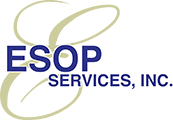October 28, 2007
House Ways and Means Committee Proposes Cutback in outside equity incentives
(Stock options, Stock Appreciation Rights (SARs), Warrants, Phantom Stock, etc.)
Existing Structures to be Grand fathered.
Legislation introduced 10/25/07 by Chair of the House Ways and Means Committee, Charles Rangel [D-NY], has as a so-called loophole closer, a provision that impacts an S ESOP corporation’s granting equity incentives to employees by assessing additional taxes that could exceed 100%.
Section 3701 of HR 3970, refers to a stock “option”, but defines as an “option” any interest that is the same as what is defined as synthetic equity in IRC 409(p)(6)(C) and would apply to options granted after the date of enactment.
The legislation will supposedly raise $600 million over ten years, or $60 million per year, in order to help pay for a near $400 billion reduction in corporate income taxes due to a proposed rate cut in the C corporation current rate of 35% to 30.5%, a proposal initiated by the Administration.
(The proposal does not impact the underlying tax treatment of the S corporation’s taxable income pro rated to the ESOP’s ownership share.)
The ESOP Association released the following statement,
“The ESOP Association’s historical posture is to be aggressive in protecting ESOP law and ESOP companies, as one set back often emboldens ESOP cynics to seek more ESOP cutbacks later,” said ESOP Association President and Chief Staff Officer Michael Keeling. “As noted when the Treasury Department recommended doing away with all ESOP tax benefits to pay for a corporate rate reduction in the name of making America more competitive, it is ludicrous to cut back on a program—employee ownership through ESOPs—that has proven to more often than not create a high performing, competitive company that is fair to employees. On the other hand, we are pleased that the Democratic leadership of Ways and Means did not endorse the more anti-ESOP proposal embedded in the Treasury Department recommendation in August.”
There is strong opposition to the entire bill, and enactment would be no earlier than some time in 2008, or perhaps even later, if ever. The provision is summarized below.
Recognition of ordinary income on exercise of stock option in an S corporation with an ESOP.
Under current law, an individual that holds an option in an S corporation in not subject to tax on the income of the S corporation until such individual exercise their option and becomes a shareholder in the S corporation. During the period of time in which an individual holds an option in an S corporation, taxes on the income earned by the S corporation are intended to be paid by the other shareholders in the S Corporation. However, a portion of the S Corporation’s earnings will never be subject to tax if one of the shareholders in the S Corporation is a tax-exempt employee stock ownership plan (an “ESOP”). Certain taxpayers have taken advantage of these aspects of current law by having a tax-exempt ESOP hold a significant percentage of an S corporation’s stock while taxable individuals hold stock options. The combined effect of this structure is that taxable investors are able to benefit from appreciation of the value of the S corporation while a significant portion of the S corporation’s income completely avoids tax. The bill would require these option holders to recognize income when and option is recognized or sold in an amount equal to the amount of income that was shifted to the ESOP through this type of tax planning during the period of time that the option was held such taxpayer. Interest will assessed at the underpayment rate on any amounts included under this provision. This proposal is estimated to raise $606 million over 10 years.
